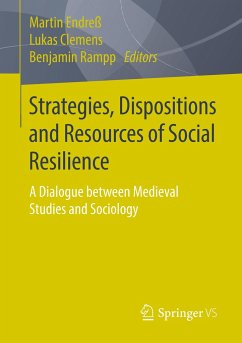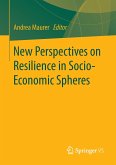The concept of resilience, which originally emerged in psychology, has spread to numerous disciplines and was further developed particularly in social ecology. Resilience experiences an ongoing growing reception in the humanities and historical and social sciences as well, including heterogenic approaches on how to conceptually frame resilience. Common to these approaches is, that resilience becomes topical in the context of analysing phenomena and processes of the 'resistibility' of certain (socio-historical) units or actors which are perceived as being faced with various constellations of disruptive change. In this context, resilience is not only taken to mean the opposite of vulnerability, but at the same time, resilience and vulnerability are understood as complementary concepts. From this perspective, vulnerability is a necessary condition of resilience and vice versa. Against this background, the present volume provides a preliminary appraisal of socio-scientific and historical resilience research by assembling contributions of authors originating from different disciplines. Thus, it fosters an interdisciplinary discussion on the theoretical and analytical potentials as well as the empirical applicability of the concept of resilience.
ContentsStrategies, Dispositions and Resources - Theoretical contributions - Medieval case studies - Reflections and General Comments
The EditorsDr. Martin Endreß is Professor for General Sociology at the University of Trier.
Dr. Lukas Clemens is Professor for Medieval History at the University of Trier.
Dr. Benjamin Rampp is research assistant for General Sociology at the University of Trier.
ContentsStrategies, Dispositions and Resources - Theoretical contributions - Medieval case studies - Reflections and General Comments
The EditorsDr. Martin Endreß is Professor for General Sociology at the University of Trier.
Dr. Lukas Clemens is Professor for Medieval History at the University of Trier.
Dr. Benjamin Rampp is research assistant for General Sociology at the University of Trier.








